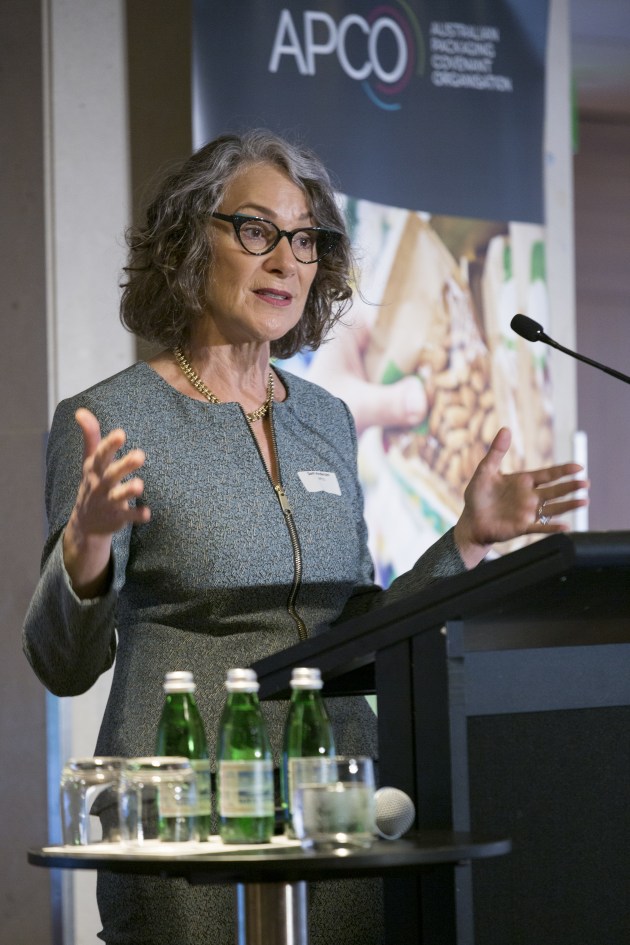Australian Packaging Covenant Organisation (APCO) CEO Brooke Donnelly told a gathering of industry leaders at this week’s ANZPAC Plastics Pact workshop that now is the time for action.
“This is not a talkfest,” she said. “This is not a greenwashing space. This is action. We are hitting the ground running. We have got an incredibly difficult target to achieve by 2025. Just wrangling our head around the administrative side of that is absolutely confounding at times.
“We have to be on the ground, we have to be active, we have to be driving the change, that transition to the circular economy. Not in a year’s time not in two years’ time, now."
Donnelly said the establishment of the ANZPAC Plastics Pact is the first step towards a concerted push forward to reach those targets.
I look at the 1500 members that make up the APCO and I have absolute confidence that this industry has the capacity to overcome a waste problem. That plastic must become a resource, plastic must become valuable, we all know these things, and we need to make that transition,” she said.

“Yes its big; yes it’s complex and a bit messy, but we’ve got so many good clever minds in the space, we will get there. This is really about action, this is about getting things done, it’s about holding others to account who aren’t contributing to that work.”
Donnelly said one reason behind the establishment of the ANZPAC Plastics Pact is to consolidate efforts throughout the industry on a visible and co-ordinated platform in Australia, and also New Zealand and the Pacific islands.
“Why New Zealand and the Pacific islands?” she asked. “Because we have an obligation to recognise that our waste is travelling to their shores, and theirs is travelling to ours. Plastic is an international issue, it’s a global issue, it does not stop at our shores, and we’re all part of the global supply chain. We need to be consistent in our approach, we need to make sure that what we do works for industry and they need to be able to do what we do in Australia in New Zealand. That consistency is vitally important in terms of working through the plastics issues.”
Sam Andersen, APCO board chair, told the gathering the economics of building recycling infrastructure will not stack up unless demand is matched with supply.
“Start calling out your demand for those materials, loud and clear,” Andersen said. “If we can get the demand sorted, the supply will look after itself because people in that industry do want to create those facilities, they do want to create the jobs.”

Juliet Lennon, project manager, new plastics economy at the Ellen MacArthur Foundation, said as part of the global Plastics Pact means ANZPAC Plastics Pact members will be able to exchange learnings, insights, and best practices with others around the world.
“Success stories from the ANZPAC Plastics Pact will be amplified around the world for others to learn from, and the ANZPAC PP will receive the latest circular economy insights, analysis, and global updates from the Ellen MacArthur Foundation, and also from all the other actors in the network,” she said.
David Rogers, head of international resource management at Wrap (the Waste and Resources Action Programme), said a major benefit of the global Plastics Pact network was the opportunities for learning and collaboration across borders such structures offer. He pointed to efforts in Latin America to expand the Chilean Plastics Pact to other Pacific Alliance countries such as Mexico, Peru, and Colombia.
“The governments of those countries were going to bring in plastics bans and legislation,” Rogers said. “But the businesses operating in those countries, said, ‘hold on, Chile has a really good model here, think it’s going to work, why don’t we just sit down and see if we can roll out a plastics pact in these countries’.”
Lennon and Rogers concur there is huge momentum around the world – government, businesses, citizens are demanding change, and coming together for a world in which plastic never becomes waste or pollution.






